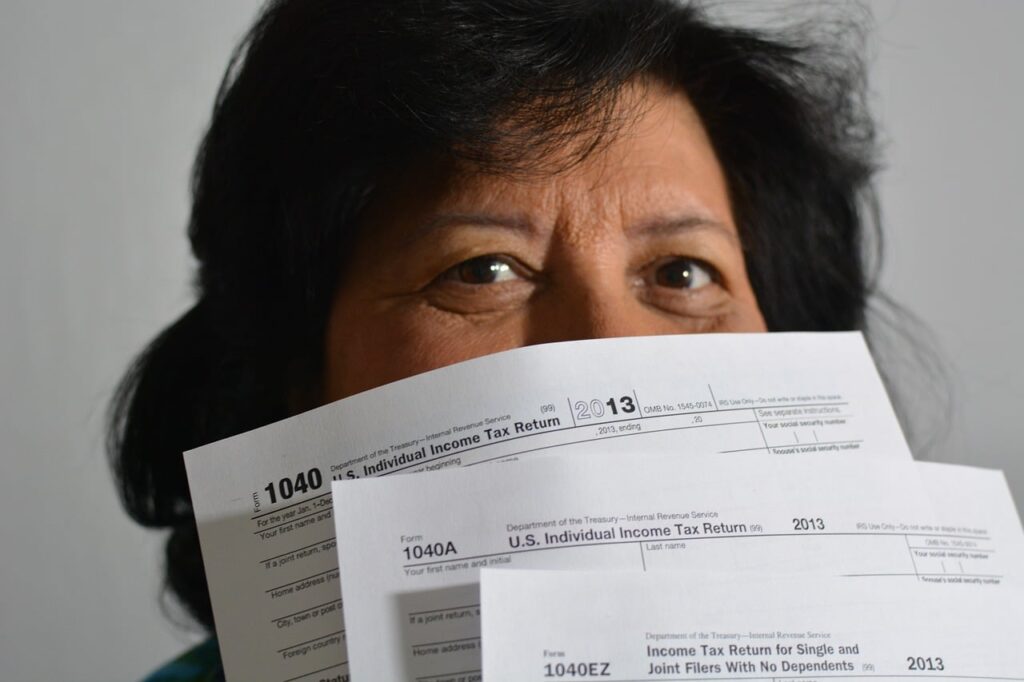 Before going into details, I’m just going to start out by answering this question. “Absolutely not!” Transferring property into your child’s name while you are still alive is probably one of the most horrible ideas of your life. I’m serious. Real estate transfers are not a DIY, or quick and done kind of matter, as there are many ways that the transfer can go sideways, or cause unintended consequences like capital gains tax, interpersonal issues between your children, medicaid qualification issues, and chain of title questions. Let me explain with a story that happened with my family.
Before going into details, I’m just going to start out by answering this question. “Absolutely not!” Transferring property into your child’s name while you are still alive is probably one of the most horrible ideas of your life. I’m serious. Real estate transfers are not a DIY, or quick and done kind of matter, as there are many ways that the transfer can go sideways, or cause unintended consequences like capital gains tax, interpersonal issues between your children, medicaid qualification issues, and chain of title questions. Let me explain with a story that happened with my family.
Transferring property to your children while you are still alive has many unintended negative consequences
Once upon a time a lawyer thought it would be a good idea to take all the family property out of my grandparents names and put it in the names of their children. This act was called “poor man’s estate planning” in the field, because my grandparents had property, but no money – and they needed to prepare to qualify for medicaid. Because they had no money the lawyer thought – there is no reason for a trust, we’ll just split it between the 5 kids as Tenants in Common. So now 5 VERY different people, with different values, who didn’t get along were all co-owners of property. The following negative consequences ensued:

Huge Tax Bill – Each of them got hit with capital gains tax on their personal tax returns for the growth in value of their capital holdings. This tax can be up to 22% (15% from IRS plus 7% for Washington state). So say you own a property worth a million dollars in Seattle – your child, who you transfer the property to, could get a capital gains tax bill of $230,000!
Property Management & Upkeep Challenges – My aunts and uncles had never run a small business, let alone attempted to run a business together. As a result, they fought tooth and nail about every single upkeep cost (roof, siding, gutters, plumbing etc), as well as the annual property taxes. Owning property requires time, energy, money and know-how to manage the upkeep of that property. If the child or children do not know how to manage property, it is not a skill that is picked up upon ownership of real estate automatically.
Property Tax Responsibility – As I mentioned above in my family situation the siblings fought about who should pay the property taxes because not all of them used the property. As a result, some of the taxes remained unpaid, and property taxes in arrears can result in fees (up to 8% in Washington!) and arrears and liens being put on the property and/or the individual’s credit. In some states if you don’t pay the property taxes the property can be purchased out from under people just by paying the delinquent taxes (see tax sale Florida). If the child can’t afford the annual property taxes there is a risk of loss of the property. In my family’s situation, they eventually had to sell the property because of the large tax bill and their inability to agree on how to maintain it.
Bad Blood/Tension Among the Children – My aunts and uncles did not see eye-to-eye, and that was an understatement. As a result, after years of attempting to manage the property together they ended up threatening each other with lawsuits, selling, and now they do not speak. But even if your two children do get along, if you give the property to all of them while you alive it could result in interpersonal issues among them, due to the stress of the transfer. In any family, managing property together takes communication and cooperation. And finally for those of you with just one child saying, this can’t happen – ask yourself, is that one child ready to take on the responsibility? And can they handle the tax burden? Your gift could become a curse depending on their financial situation.
Medicaid Fraud or Qualification Challenges – Every state has its own qualifications for Medicaid but all of them have a 5 year look back period for assets. Which means if you are trying to qualify for Medicaid if you transfer your property to your children and less than five years goes by when you need to qualify, Medicaid is going to look at that transfer to your children negatively. It is going to end up costing them and you time, energy and definitely money. The only thing that worked out for my grandparents in my family story was that they died before they actually needed medicaid.
Chain of Title and other issues – Chain of title is the story of who “owns” the property throughout time. If one owner sells to a new buyer then the title goes to the new buyer upon close, and the chain of title reflects this. When you have Tenants in Common everyone holds their own independent share that they can sell or give to someone else. So say a family cabin is put in the names of 6 siblings, and one of those siblings dies. If the dead sibling has an estate plan her portion goes to her children in equal shares. Now we have 7 co-owners of the property, and the chain of title is more complex.
But the complexity doesn’t end there. In this same scenario another sibling decides to do a quit claim deed and sell their share to the neighbor. Sibling and the neighbor are going to make a lot of money off a cash crop in the back 40 acres. Then the neighbor dies without a will, and their share is divided equally among their 3 children. Now we have 10 owners, and a really really messy chain of title. The possibility for chaos and lawsuits multiplies with every additional co-owner and title transfer.
Complex Expensive Probate – IF your children who you give property to do not have their own estate plan in place and something happens to them, there will have to be probate for their share in the real estate. Real estate does not automatically go to the surviving siblings when someone dies intestate (i.e. without an estate plan). As a result, the poor man’s estate planning of the parent becomes the estate planning that makes your child’s family poor from the cost of probate. Further, the potential conflict among family in these scenarios is extremely high. Especially because of all the issues mentioned above. In my family, at the end of the day, my aunts and uncles still had to go through probate for my grandfather after his passing. No money, time, or energy was saved by transferring his property to his children when he was alive.

What you should do instead of transferring property to your children when you are alive.
The saying goes the road to hell is paved with good intentions. Transferring property to your children when you are alive is a prime example of this proverb coming true. The good intention of avoiding probate and lawyers and other costs by transferring property to your children while you are alive, results in many, many bad and costly consequences for your children.
What you should do instead of transferring the property to your children while you are alive is to connect with an experienced, holistic thinking, estate planning attorney and talk to them about your goals and fears when it comes to how you want your legacy to pass to your children. What is most important in this situation is the estate planning attorney LISTEN to you and your goals for your family. I say listen, because the right type of estate plan really depends on your individual situation. There is no such thing as cookie cutter estate planning or Poor Man’s Estate Planning. This is not an area to cut corners or be afraid to reach out to an expert. Depending on your unique family dynamic, your health, your other assets and your goals an experienced compassionate estate planning attorney can create a custom estate plan that properly transfers the real estate assets to the right people, at the right time, in the right way avoiding probate, avoiding estate taxes and capital gains taxes – and most importantly sets your children up for success in such a way as you leave a legacy of positivity versus tax burdens and other negative consequences.
Why I became an estate planning attorney
I became an estate planning attorney in part because of the horrible experience that my family had as a result of an attorney not listening to them. The attorney just did a cookie cutter move based on what they thought was best for my grandparents. They did not listen to understand the family dynamic, and then gave no advice as to how to manage the situation for my aunts and uncles. No one was set up for success. As I said, the only good thing was that my grandparents died before it could all blow up in their face – but it did blow up in their children’s relationships. Seeds of destruction for a family were planted in one property transfer – and I never want to see that happen to another family ever again. As cheesy or cliche as it sounds – good intentions do not make a good estate plan, in fact they usually result in really big messes with lots of hard feelings. I have made it my mission to end the road construction to hell.
Don’t hesitate to get going on your estate plan today
Have further questions about this question or something similar? Don’t hesitate, and call an experienced estate planning attorney today. Using the link below you can book a free consultation with our firm who is ready to help you create the best possible legacy and meet all of your planning goals for you and your family.



